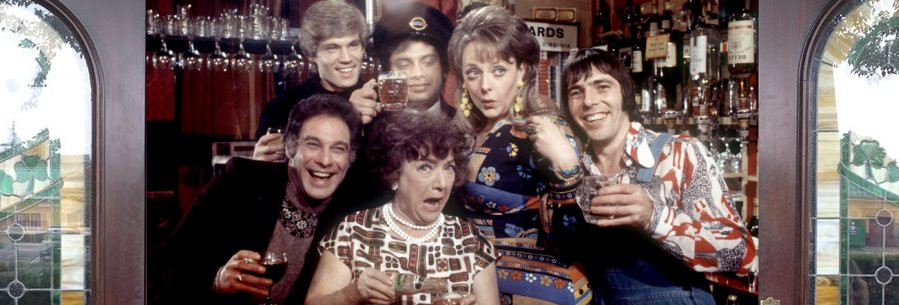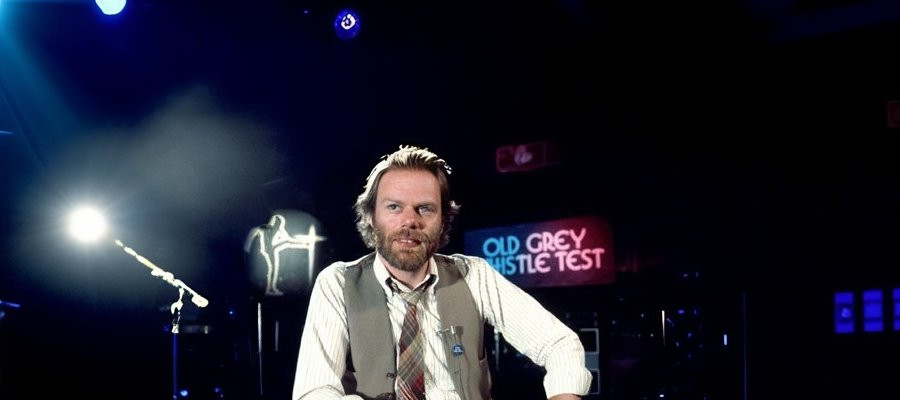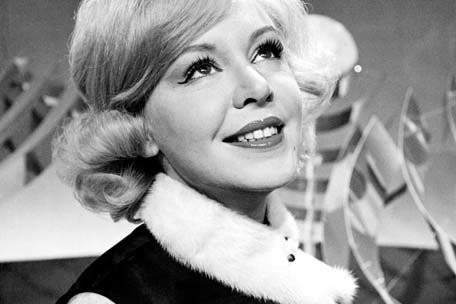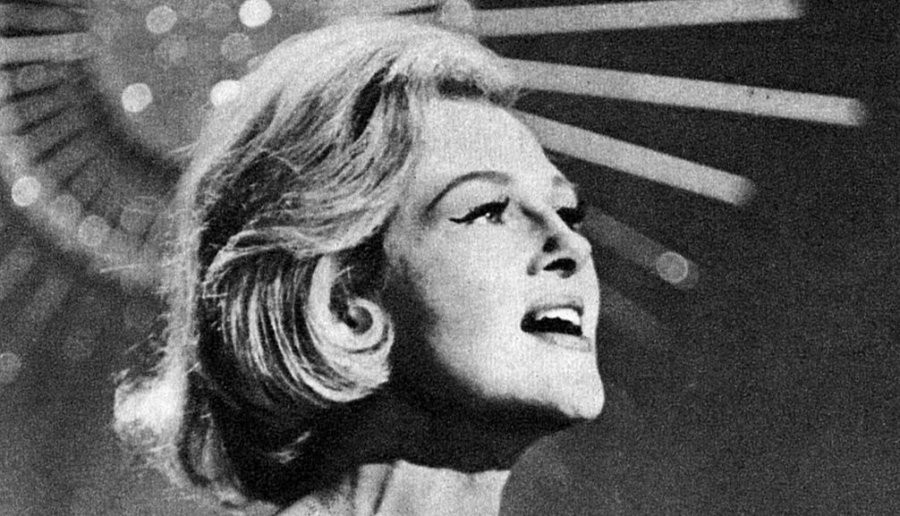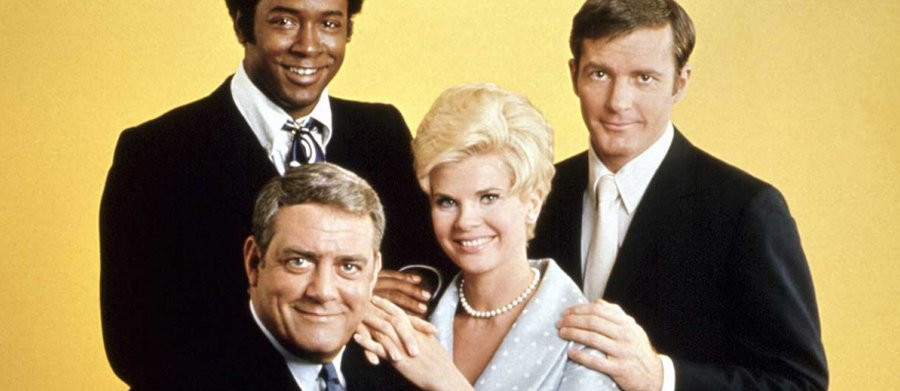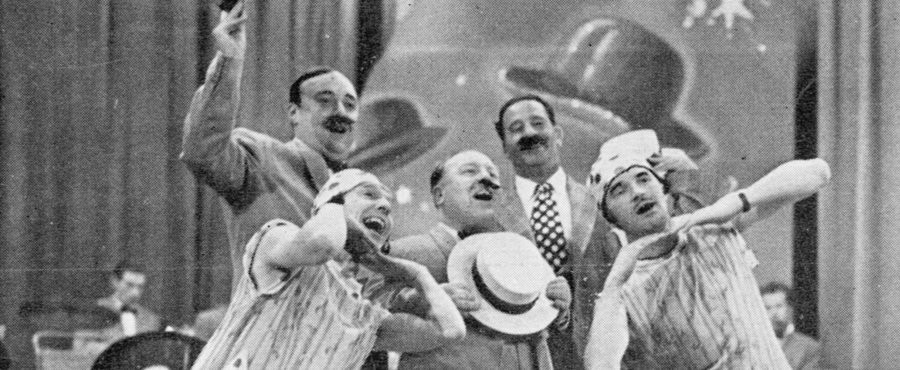
The Partridge Family
1974 - United StatesA hybrid of domestic comedy and musical variety, The Partridge Family was a successful example of how rock music could promote a television show-and vice versa. For a time, it made co-star David Cassidy a teen idol favorite-and who didn’t want a mom like Shirley Partridge, who was not only cool, but also warm and wise? Even today, The Partridge Family has its fans-and its detractors.
Columbia Pictures’ Screen Gems television arm had a success with The Monkees from 1966 until 1968, when producer Bob Claver came up with the idea of having a family act as the centerpiece of a comedy. Plans initially called for a real-life family singing group -"The Cowsills"- to be featured, but Claver didn’t think the singing clan would work in a scripted series, so it was decided to hire actors who weren’t professional musicians, and use studio musicians to provide the music.
Academy Award-winning actress Shirley Jones agreed to star as Shirley Partridge, a widow with five children who lived in California and decided to form a singing group. Jones’ real-life stepson David Cassidy was cast as older son Keith; young model Susan Dey was tapped to play 15-year-old Laurie and for comic relief, producers found rambunctious Danny Bonaduce, who played 10-year-old con man and schemer Danny Partridge. Jeremy Gelbwaks played seven-year-old Christopher (replaced after the first season with Brian Forster) and Suzanne Crough was cast as five-year-old Tracy Partridge. Former Rowan & Martin’s Laugh-In regular Dave Madden played agent Reuben Kinkaid, who hated child performers in general-and young Danny in particular. But Reuben knew talent when he saw it and decided to represent the Partridges.
Every week, the family either took off for concerts in their old psychedelic Chevrolet school bus, or the story revolved around home life in their California suburb. (Each episode ended with at least one performance by the Partridges.) Before the show even made its September 25th, 1970 debut on ABC, producers found songs from various artists and recorded them with studio musicians. (Shirley Jones and David Cassidy did provide the vocals, since both were good singers.) The pilot episode featured the Partridge’s first single "I Think I Love You". Within weeks, The Partridge Family was a solid top-20 hit for ABC; even better, "I Think I Love You" soon after reached number one on 'Billboard’s' Top 100 singles chart, helped by exposure on the TV show. It eventually sold four million copies; the group’s first album also did well. Other Partridge Family hits included "I Woke Up In Love This Morning"; "Doesn’t Someone Want To Be Wanted"; "I’ll Meet You Halfway" and "Cherish".
Despite its hip rock image, The Partridge Family was squeaky-clean family fun, helped along by David Cassidy’s charm; Susan Dey’s good looks, and the comic talent of Danny Bonaduce. (Bonaduce and Dave Madden had many good scenes together, giving many episodes a much-needed injection of humor.)vBy the show’s first season, David Cassidy was a bonafide teen pop idol, but wanted to move beyond the love songs and ballads the producers wanted him to sing on The Partridge Family. And the producers were capitalizing on a “Partridge” merchandising bonanza, with the show’s cast on everything from T-shirts to lunch boxes. None of the cast members received a piece of the merchandising profits, something that annoyed Cassidy to no end, so he cashed in on his television image with weekend concerts, after long grueling weeks on the Partridge Family set and in the studio. His manager later discovered Cassidy was a minor when he signed on to the show, making the contract null and void. Now an adult, Cassidy used his clout to get more money and a piece of the merchandising pie. Before long, Cassidy became one of the highest paid television performers of the early 1970’s.
But not even more money could make Cassidy happy; he was tired of his squeaky-clean Keith Partridge image. In an effort to change people’s perceptions, he granted an interview with "Rolling Stone" magazine, where Cassidy admitted to smoking pot and engaging in sex with his many "groupies". He also knocked the TV show while posing half-naked for a photo in the rock periodical. The "Rolling Stone" interview resulted in raised eyebrows, but the show’s ratings remained high. Ironically, ABC did what David Cassidy could not. In the fall of 1973, the network moved The Partridge Family from its high-rated Friday night timeslot to Saturdays-opposite CBS’ All In The Family, the most-popular series on television. The ratings soon fell. By that time, Cassidy’s contract was coming to an end, and he had no intention of signing on for a fifth season. Without Cassidy, ABC and the producers decided to pull the plug on The Partridge Family; the final episode aired August 31st, 1974.
Soon after the show ended, David Cassidy’s time in the spotlight dimmed as fans gravitated to other singers; his post-“Partridge” troubles were chronicled in a 1994 autobiography "C’mon Get Happy" (which also became a made-for-television movie, and the basis for many a “celebrity profile” or “true Hollywood story”. Co-star Bonaduce had his own drug and personal problems, but eventually became a successful radio announcer and briefly hosted a syndicated talk show. Susan Dey went on to her best-known non-“Partridge” role-district attorney Grace Owen on L.A. Law and Shirley Jones still shows up as a guest on various television shows, forever linked as Shirley Partridge. (Fans either forget or don’t know Jones won an Oscar for her work in Elmer Gantry where she played -believe it or not- a prostitute!)
While The Partridge Family occasionally pops up in reruns, and is still cherished on various websites. As this was being written, American cable music channel VH1 began airing a new reality series In Search of The Partridge Family, casting actors to star in an updated version of the series. You probably can’t go home again, but still, the original Partridge Family is not unlike bubble gum-sweet, sticky, with a short-lived flavour that lingers long after the last chew.
Seen this show? How do you rate it?
Seen this show? How do you rate it?
Published on January 18th, 2019. Written by Mike Spadoni (2004) for Television Heaven.


